Top Metalworking Tools for Professional Use
Abana Chapter
February 12, 2024
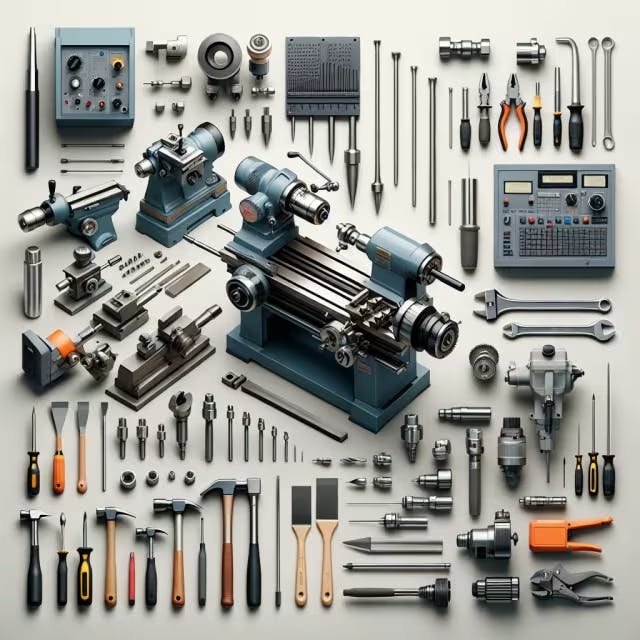
Embarking on a journey into the world of metalworking requires not just skill and dedication, but also a comprehensive set of top metalworking tools for professional use. Whether you're an aspiring jeweler influenced by the tailored advice from Metalsmith Society since early 2018 or a seasoned metal fabricator, navigating through the vast array of essential power tools and safety equipment can be overwhelming. This guide aims to demystify the selection process, offering insights into the foundational tools and advanced technologies that are vital for crafting quality metalwork with precision and safety.
Key Takeaways
For both aspiring jewelers and experienced metal fabricators, navigating the vast array of metalworking tools requires understanding both the essentials and the advanced technologies that ensure precision and safety.
Essential power tools form the backbone of professional metalworking, enabling efficiency and the capability to tackle a range of projects.
Safety equipment is paramount in metal fabrication to protect against common hazards, highlighting the industry's prioritization of worker health and safety practices.
Precision measuring tools are indispensable in metalworking for achieving exact specifications and ensuring the quality of the final product.
Advanced cutting technologies offer metalworkers the ability to work with a variety of materials with accuracy, expanding creative possibilities.
Regular maintenance of metalworking tools is crucial for ensuring their longevity and optimal performance, underscoring the value of proper tool care practices.
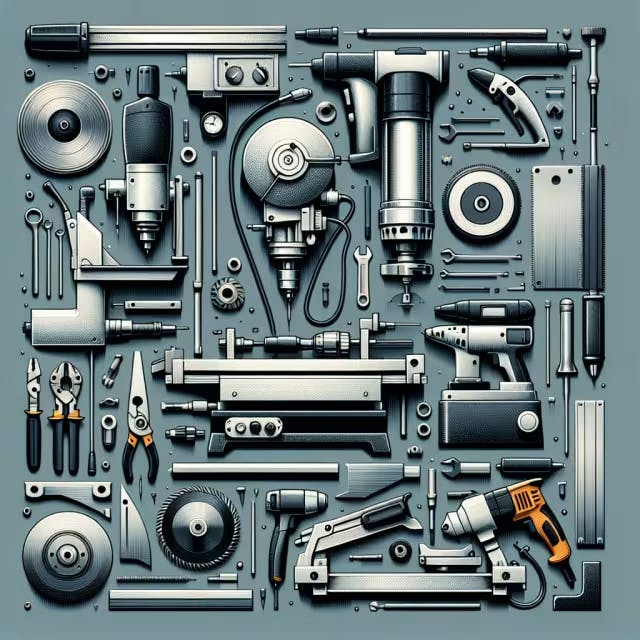
Essential Power Tools for Metalworking Professionals
Selecting the right tools is critical in metalworking to ensure precision, efficiency, and safety. Among the myriad options available, here are some top power tools that professionals often consider indispensable:
Angle Grinder: Ideal for cutting, grinding, and polishing various metals. Its versatility makes it a staple in metalworking shops.
Drilling Machine: For creating precise holes, a high-quality drilling machine is non-negotiable. It's used extensively in metal fabrication for bolting and riveting.
Welding Machine: A must-have for joining metal pieces. The type of welding machine (MIG, TIG, or Stick) depends on the specific requirements of the project.
Bench Grinder: Essential for shaping and sharpening metal tools and parts, ensuring they are fit for purpose and maintain their effectiveness.
Sheet Metal Shear: For cutting straight lines or large curves in metal sheets, a shear is much more efficient than manual cutting tools.
The choice of tools can significantly impact the quality and speed of metalworking projects. Investing in high-quality, durable tools from reputable manufacturers can lead to better outcomes and increased workshop productivity.
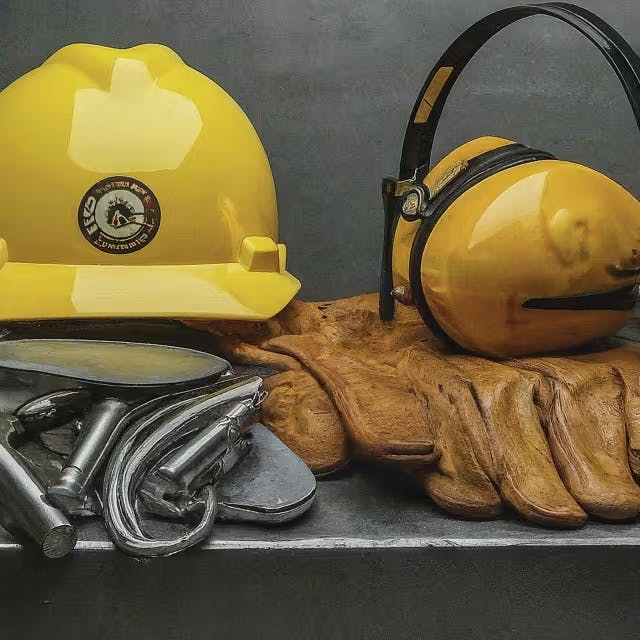
Safety Equipment for Metal Fabrication
When working in metal fabrication, using the correct safety equipment isn't an option—it's a necessity. Ensuring protection from the myriad of hazards encountered during metalworking tasks, like sharp edges, hot surfaces, and flying debris, can significantly reduce workplace injuries. Here's a list of indispensable safety gear:
Protective Eyewear: High-grade safety glasses or goggles that abide by the ANSI Z87.1 standard fortify against particles and sparks.
Gloves: Durable, cut-resistant gloves provide a safeguard against sharp edges and extreme temperatures.
Respirators: For operations generating harmful dust or fumes, selecting an appropriate respirator is critical. Reference materials like 3M's guide can aid in making an informed choice.
Hearing Protection: Metalworking often involves exposure to high noise levels, making earplugs or earmuffs vital.
Fire-resistant Clothing: To shield against heat and sparks, wearing fire-resistant clothing can offer substantial protection.
Employing these safety equipments comprehensively decreases the risk of accidents and injuries in the workplace, ensuring that projects proceed smoothly and safely.
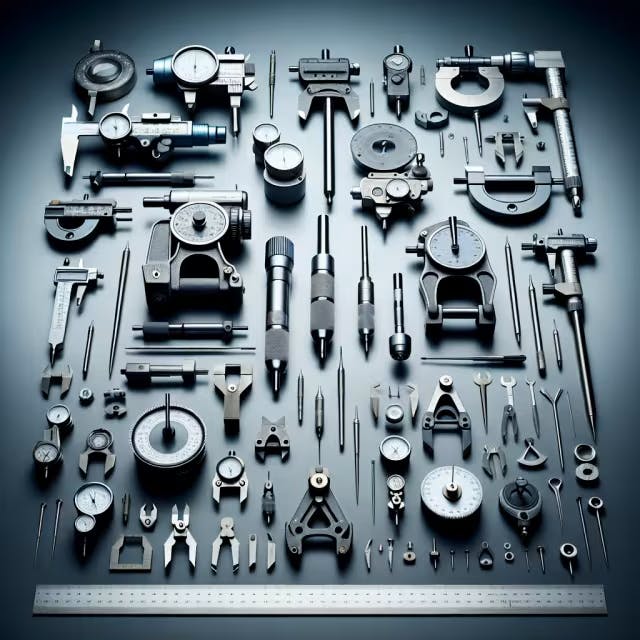
Precision Measuring Tools in Metalworking
For professionals in the metalworking industry, accuracy and precision are paramount. Among the array of tools necessary for high-quality work, precision measuring instruments are indispensable. These tools enable precise measurement down to the smallest units, ensuring that each piece of work meets the required specifications with exactitude.
Calipers: A must-have in any metalworking shop, calipers allow for quick and accurate measurement of both internal and external dimensions. Digital calipers offer an even higher level of precision with easy-to-read displays.
Micrometers: For measurements that require even greater precision than calipers, micrometers are the go-to instrument. They are perfect for determining the thickness of a material or the diameter of a round object with minute accuracy.
Dial Indicators: Essential for checking the uniformity and alignment of materials, dial indicators provide precise measurements of small distances and help to identify even the slightest deviations from the desired position.
Gauge Blocks: Also known as Johansson gauges, these blocks are used for calibrating measuring equipment and as a reference standard for the precise measurement of length. A set of gauge blocks can be a foundational tool for ensuring accuracy across various projects.
By incorporating these top precision measuring tools, professionals can ensure their work not only meets but exceeds the rigorous standards required in the metalworking industry.
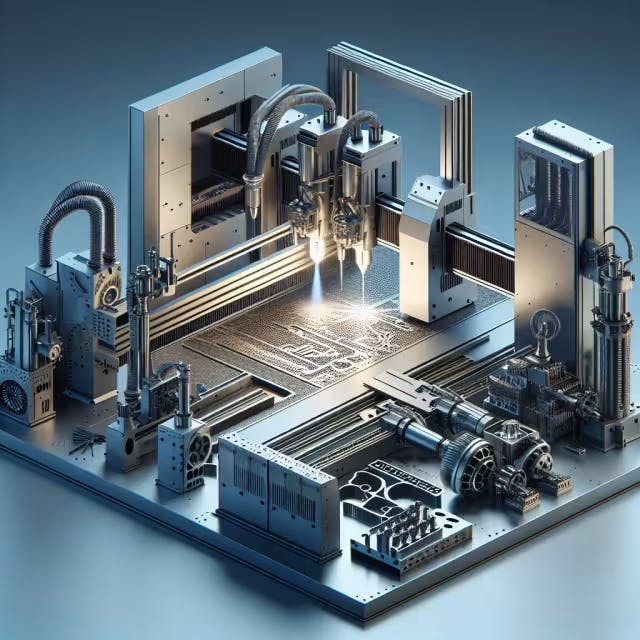
Advanced Cutting Technologies for Metalworkers
Metalworking has evolved significantly since its inception, advancing from simple hand-forging to complex processes that utilize cutting-edge technology. Among these advancements, some key tools have emerged as indispensable for professionals aiming for precision and efficiency in their metal fabrication tasks. A deeper understanding of these tools not only showcases technological progress but also guides professionals in selecting the right equipment for their projects.
CNC Machines: Computer Numerical Control (CNC) machines revolutionize how metal is cut and shaped, offering unparalleled precision. By programming the machine, metalworkers can achieve complex designs and repetitive accuracy that manual processes could never accomplish.
Laser Cutters: These tools use high-powered lasers to cut through metal with incredible accuracy. Laser cutters are versatile, capable of cutting various metal types and thicknesses, making them essential for intricate designs.
Plasma Cutters: Ideal for cutting electrically conductive metals, plasma cutters offer a swift cutting process with a minimal heat-affected zone. This attribute is crucial for projects where preserving the metal's properties around the cut is necessary.
Waterjet Cutters: Using high-pressure water mixed with an abrasive substance, waterjet cutters can slice through almost any material. This method is prized for its ability to cut without altering the metal's intrinsic properties, as it does not generate heat.
Each of these cutting technologies brings unique benefits to the metalworking field, enhancing capabilities and expanding the potential for innovation. By integrating these tools into their workshops, professionals can tackle a more extensive range of projects with greater precision and efficiency.
Understanding the historical context of metalworking, as highlighted in sources like Wikipedia, enriches our appreciation for these modern tools. From the early days of shaping soft metals by hand to today's high-tech equipment, the journey of metalworking mirrors humanity's relentless pursuit of progress and excellence in craftsmanship.
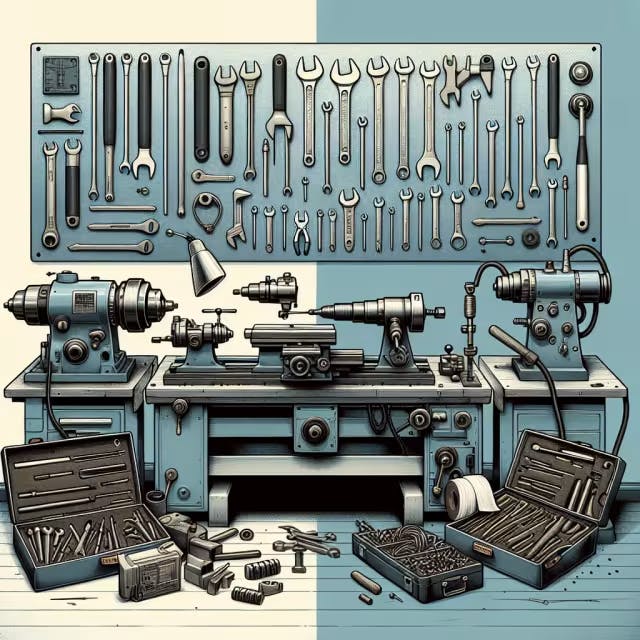
Maintaining Your Metalworking Tools for Longevity
Maintaining top metalworking tools for professional use requires regular cleaning, lubrication, and inspection. Proper storage and handling also significantly extend their lifespan. Here's a concise guide:
Regular Cleaning: Remove debris and oil after each use. Use appropriate cleaning agents to avoid damage.
Lubrication: Tools with moving parts need periodic lubrication to prevent rust and ensure smooth operation.
Inspection: Check for wear and tear, especially on cutting edges. Sharpen or replace parts as necessary.
Proper Storage: Store tools in a dry, organized manner. Use tool chests or holders to prevent accidental damage.
Handling: Use tools for their intended purpose to avoid overloading or incorrect application.
Implementing these practices ensures that top metalworking tools remain in peak condition, bolstering productivity and safety in professional settings. In conclusion, for professional metalworkers, the key to achieving both exceptional quality and safety in their projects lies in the selection of top metalworking tools for professional use, incorporating both traditional essentials and advanced technologies. Equipping oneself with the right combination of power tools, safety gear, precision measuring devices, and staying abreast of cutting-edge advancements not only enhances efficiency but also ensures accuracy and safety. Adequate maintenance routines further ensure these tools deliver optimal performance over time, making them invaluable assets in the metalworking profession.
Frequently Asked Questions
What are the essential angle grinders for professional metalworking?
For professional metalworking, essential angle grinders include:
Angle Grinder: A versatile tool crucial for cutting, grinding, and polishing different metals, making it a staple in metalworking shops.
Bench Grinder: Key for shaping and sharpening metal tools and parts, ensuring they maintain their effectiveness for the job at hand.
Drilling Machine: Indispensable for creating precise holes in metal, a fundamental operation in metal fabrication.
Welding Machine: Depending on the project's requirements, selecting the right type of welding machine (MIG, TIG, or Stick) is vital for efficiently joining metal pieces.
Sheet Metal Shear: Superior for cutting metal sheets, it offers efficiency and precision far beyond manual cutting tools.
Investing in these high-quality, durable tools from reputable manufacturers can significantly enhance workshop productivity and ensure project success.
How do high-quality drilling machines impact metal fabrication?
High-quality drilling machines significantly enhance metal fabrication processes by ensuring precise and clean holes, which are essential for accurate bolting and riveting. Their ability to maintain consistency across numerous workpieces improves the overall efficiency of fabrication projects. Moreover, investing in top-tier drilling machines from reputable manufacturers not only leads to better outcomes but also increases workshop productivity by minimizing tool wear and the need for rework, aligning with the broader goal of selecting the right tools for precision, efficiency, and safety in metalworking.
Why are welding machines indispensable in joining metal pieces?
Welding machines are indispensable in joining metal pieces due to their capability to create strong, durable bonds between metals, which is essential for the integrity and reliability of metal structures and products. They enable the joining of metals with precision and efficiency, ensuring that the finished product meets specific strength and quality standards. Depending on the specific requirements of each project, different types of welding machines (MIG, TIG, or Stick) can be used, allowing for versatility in metalworking processes and ensuring the best outcome for each specific application, from construction and automotive to manufacturing and custom fabrication projects.
What role do bench grinders play in shaping and sharpening metal tools?
Bench grinders play a crucial role in metalworking by providing an efficient means for shaping and sharpening metal tools and parts. By using a bench grinder, professionals can ensure their tools are precisely sharpened, maintaining their effectiveness and extending their lifespan. This process is essential for achieving the high levels of accuracy and efficiency required in metal fabrication, making the bench grinder an indispensable tool in workshops focused on producing quality metalworking projects.
How do precision measuring instruments enhance accuracy in metalworking projects?
Precision measuring instruments significantly enhance accuracy in metalworking projects by enabling meticulous measurement and adherence to strict specifications, crucial for quality and functionality. They include:
Calipers and Micrometers, which allow for the precise measurement of dimensions and thicknesses to a high degree of accuracy, essential for fit and function.
Dial Indicators help in verifying the uniformity and exact alignment of materials, ensuring that parts are correctly oriented and positioned.
Gauge Blocks serve as a reference standard for exact length measurements, critical for calibrating other measuring tools and verifying their accuracy.
These tools ensure that metalworking professionals can achieve and maintain the high precision required in today’s advanced manufacturing and fabrication processes.


